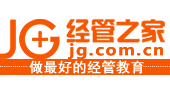A too-cosy world?

THE price-fixing complaint that America’s Department of Justice (DoJ) filed this week against Apple and five of the world’s “Big Six” book publishers has a triumphalist tone, describing secret meetings in “upscale Manhattan restaurants”. But it seems to take a rather narrow view of what is going on in the e-book industry.
Until two years ago Amazon, the dominant player in the market thanks to its Kindle e-reader, kept publishers on the “wholesale model” for e-books. This let them set the wholesale price but let Amazon sell the books at a loss, making it harder for newer e-reader makers such as Barnes & Noble to challenge its near-monopoly. That made for cheap e-books, competing against the print versions. Publishers and authors also feared that if Amazon remained dominant, it would eventually impose lower wholesale prices on them too, forcing weaker publishers and other booksellers out of business. They were therefore delighted when Apple, on launching the iPad in 2010, offered them an “agency model”, whereby they set the retail prices and give the retailer a fixed cut.
Amazon later offered the same terms to big publishers, though not to smaller ones, and the prices of many e-books rose. The DoJ says this came about through deliberate collusion between Apple and five of the Big Six. (Random House, which joined the iBookstore later, isn’t included.)
The price to consumers is the DoJ’s main beef. Three of the publishers, Hachette, HarperCollins and Simon & Schuster, have settled with the DoJ by agreeing to refrain for two years from deals that constrain retailers’ ability to offer discounts. They can strike new agency agreements, but cannot “prohibit the retailer from reducing the price set by the publishers.”
But price is not the only consideration in anti-competitive behaviour, says Leiv Blad, co-chair of the antitrust group at Bingham McCutchen, a law firm; the variety of the market is too. “For publishers to attempt to seek higher prices could be pro-competitive if it led to more output of books,” he says—so long as they didn’t collude in doing so. And even if they did, as the DoJ thinks it can show, punishing the big publishers could hurt smaller ones.
Independent publishers account for around half of e-book sales in America, estimates Curt Matthews, head of the Independent Publishers Group (IPG), a book distributor. But whereas e-books from the Big Six became, on average, more expensive under the agency model, data from Smashwords, another indie distributor, show that since Apple gave its publishers agency terms, the average price of their titles in the iBookstore has fallen by 25%. That, according to Mark Coker, Smashwords’ founder, could be because indie publishers set prices to attract customers, whereas the big ones are more concerned about covering their large overheads.
But independent publishers did not get agency terms from Amazon. With this antitrust case, they now are even less likely to. And in recent contract negotiations, it has increased other fees to publishers, which the small ones are least able to pay. In February, after IPG refused the new terms, Amazon cut nearly 5,000 of its titles. Since Amazon sells 62% of e-readers and 14% (a rapidly growing share) of tablets in America, according to data from the Pew Research Centre—figures that are likely to rise if it can restore the wholesale model—being excised from its website is a bad blow.
There is one silver lining. J.K. Rowling, author of the Harry Potter books, recently starting selling digital versions of all her titles on her own site, Pottermore, without digital-rights management (DRM)—a form of encryption that prevents piracy but also locks an e-book to one e-reader. Instead, the digital files carry a watermark that encodes the buyer’s identity to discourage piracy. Amazon and other retailers agreed, for a cut, to reroute their own customers to Pottermore. There they can send their new e-books to up to eight different e-readers.
Very few authors have enough clout to emulate Ms Rowling. And publishers and agents are scared of losing DRM. But “what happened in music [where DRM has largely disappeared] will sooner or later happen in books, and for the same reason,” says Andrew Rhomberg of Jellybooks, an e-book recommendations site. If Ms Rowling’s example could hasten that, it would make consumers less tied to a single device, giving authors and publishers—especially the small fry—more power, too.





 雷达卡
雷达卡















 京公网安备 11010802022788号
京公网安备 11010802022788号







